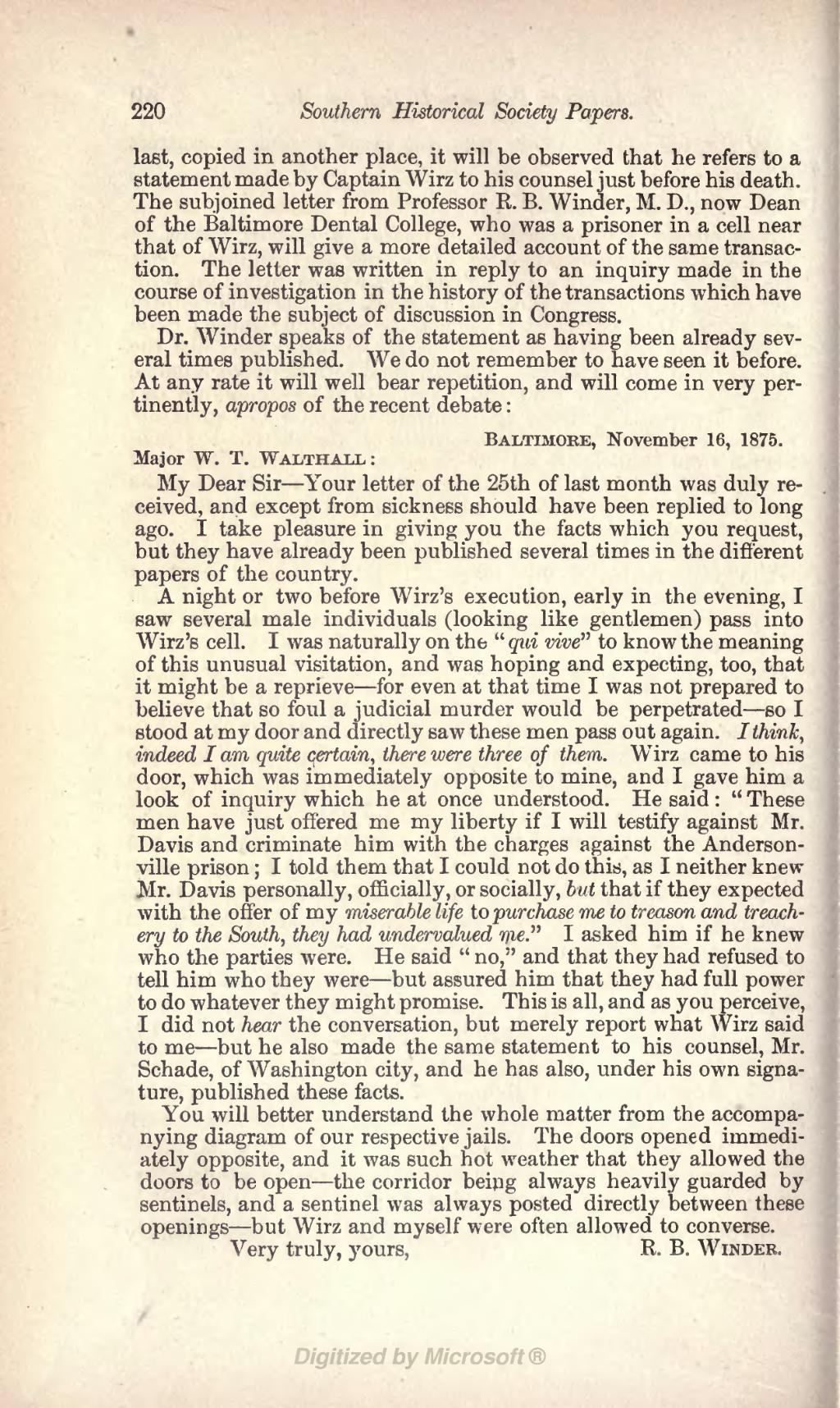last, copied in another place, it will be observed that he refers to a statement made by Captain Wirz to his counsel just before his death. The subjoined letter from Professor R. B. Winder, M. D., now Dean of the Baltimore Dental College, who was a prisoner in a cell near that of Wirz, will give a more detailed account of the same transaction. The letter was written in reply to an inquiry made in the course of investigation in the history of the transactions which have been made the subject of discussion in Congress.
Dr. Winder speaks of the statement as having been already several times published. We do not remember to have seen it before. At any rate it will well bear repetition, and will come in very pertinently, apropos of the recent debate:
Major W. T. Walthall:
My Dear Sir—Your letter of the 25th of last month was duly received, and except from sickness should have been replied to long ago. I take pleasure in giving you the facts which you request, but they have already been published several times in the different papers of the country.
A night or two before Wirz's execution, early in the evening, I saw several male individuals (looking like gentlemen) pass into Wirz's cell. I was naturally on the "qui vive" to know the meaning of this unusual visitation, and was hoping and expecting, too, that it might be a reprieve—for even at that time I was not prepared to believe that so foul a judicial murder would be perpetrated—so I stood at my door and directly saw these men pass out again. I think, indeed I am quite certain, there were three of them. Wirz came to his door, which was immediately opposite to mine, and I gave him a look of inquiry which he at once understood. He said: "These men have just offered me my liberty if I will testify against Mr. Davis and criminate him with the charges against the Andersonville prison; I told them that I could not do this, as I neither knew Mr. Davis personally, officially, or socially, but that if they expected with the offer of my miserable life to purchase me to treason and treachery to the South, they had undervalued me." I asked him if he knew who the parties were. He said "no," and that they had refused to tell him who they were—but assured him that they had full power to do whatever they might promise. This is all, and as you perceive, I did not hear the conversation, but merely report what Wirz said to me—but he also made the same statement to his counsel, Mr. Schade, of Washington city, and he has also, under his own signature, published these facts.
You will better understand the whole matter from the accompanying diagram of our respective jails. The doors opened immediately opposite, and it was such hot weather that they allowed the doors to be open—the corridor being always heavily guarded by sentinels, and a sentinel was always posted directly between these openings—but Wirz and myself were often allowed to converse.